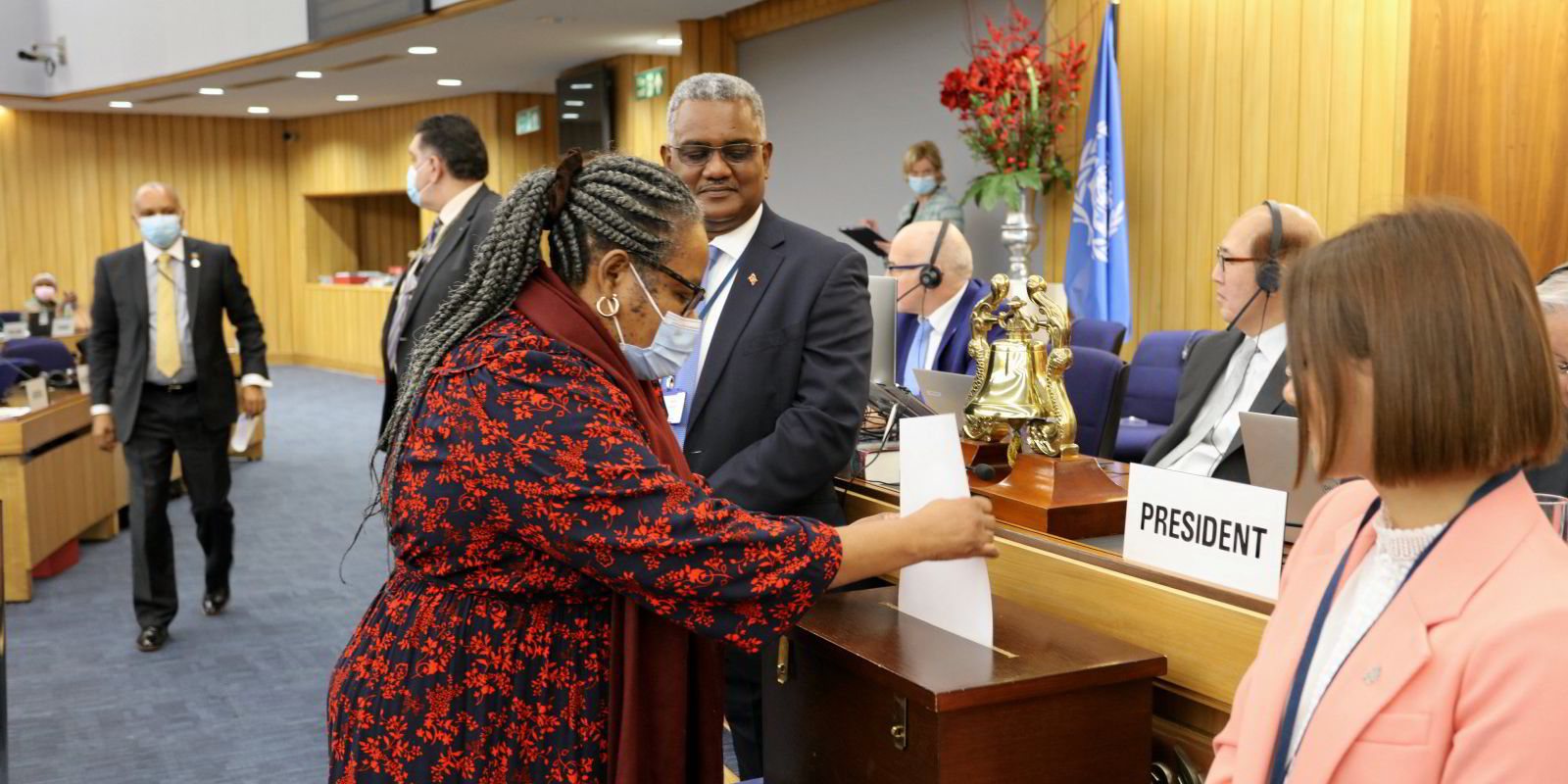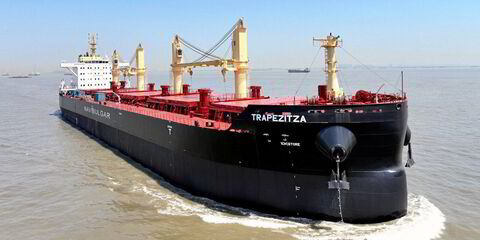The votes are in, and four states are out of a seat on the International Maritime Organization's 40-nation council.
But that means four new countries will join the IMO's executive body when its next two-year term starts in 2022.
South American and African nations lost seats, while the Middle East, the South Pacific and Europe gained representation.
The United Nations shipping regulator released a new list of nations divided into three key constituencies after an election in the IMO Assembly's biennial meeting.
Category A — the group of countries with the largest interest in providing shipping services — remains unchanged.
On the Category B list of 10 states with the largest interest in international seaborne trade, Sweden has replaced Argentina, with the remaining nine incumbent nations staying on board.
Most of the change took place in Category C, made up of other nations with special interest in maritime transport or navigation and whose election lends geographical coverage to the council.
Joining the body are oil giant Saudi Arabia, gas producer Qatar and tiny South Pacific island nation Vanuatu.
Qatar's Ministry of Transport said its election win "reflects member states' trust in the amount of work Qatar is doing with regard to maritime navigation's safety and security and marine environment protection".

Peru and South Africa failed to gain re-election, while Kuwait was not a candidate to retain its seat.
Colombia, Bangladesh, Nigeria, Pakistan and Poland were also vying for Category C slots but failed to secure enough votes.
Small and developing nations had been pushing for inclusion on the council as the IMO works on regulations on decarbonisation, with some climate-vulnerable countries looking for strong measures and other states concerned about the economic impact and fairness of any measures.
They may still have their chance eventually, as the vote came a day after the assembly voted to expand the council to 52 members, although the additional 12 members will not be added until the measure enters force.
Terms will also be extended to four years from two.
Category A: 10 states with the largest interest in providing international shipping services
China, Greece, Italy, Japan, Norway, Panama, South Korea, Russia, UK and US
Category B: 10 states with the largest interest in international seaborne trade
Australia, Brazil, Canada, France, Germany, India, the Netherlands, Spain, Sweden and the United Arab Emirates
Category C: 20 states that have special interests in maritime transport or navigation and whose election to the council will ensure the representation of all major geographic areas of the world:
Bahamas, Belgium, Chile, Cyprus, Denmark, Egypt, Indonesia, Jamaica, Kenya, Malaysia, Malta, Mexico, Morocco, the Philippines, Qatar, Saudi Arabia, Singapore, Thailand, Turkey and Vanuatu
"The adoption of the amendments to the IMO Convention is a major milestone in the reform of the council," said IMO secretary general Kitack Lim.
"The expansion of the size of the council to 52 will support the attainment of a representative, balanced, diverse and efficient council that can support the interests of the whole membership and ensures the representation of all the major geographic areas of the world."
Two-thirds of IMO membership, or 117 states, must formalise their acceptance of the rules before they enter force.
Lim urged countries to take that step quickly.
Under the expansion, there will be 12 Category A and B countries, while the Category C list will expand by eight to 28.
The council serves as the key executive organ of the IMO, performing much of the assembly's duties when the wider body is not in session, other than those related to safety and pollution.
In that role, its members have a significant voice in determining policy, as well as the IMO's budget and work schedule.
It is also scheduled to choose the next secretary general when Lim completes his second and final term.
Energy and infrastructure minister Suhail Al Mazrouei described the United Arab Emirates' re-election to the council as part of its role as an influential nation in developing the maritime sector.
"Our re-election ... for the third consecutive time has further strengthened our active role in developing the sector and enhancing maritime safety standards, as well as protecting the marine environment globally," he said.
Danish Maritime Authority director general Andreas Nordseth celebrated his country's re-election with an image of cheerleaders and a thank-you emoji.
"We are honoured and thank all who supported," he said.
The assembly, which is made up of all 175 member states and three associated members, is holding its 32nd meeting in London until 15 December.




